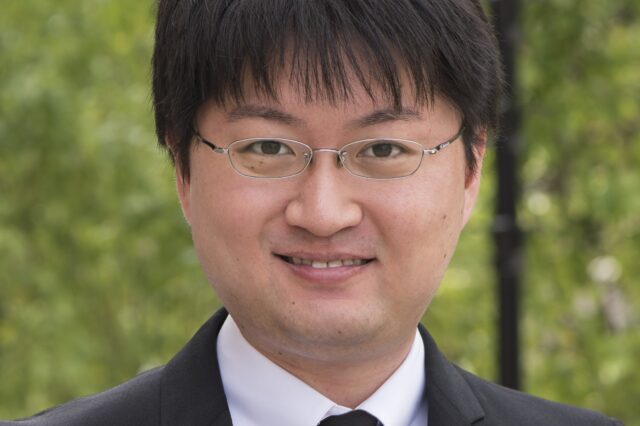New Wertheim UF Scripps scientist expands chemists’ tools

Masayuki Wasa, Ph.D.
A new scientist joining The Herbert Wertheim UF Scripps Institute for Biomedical Innovation & Technology invents creative and efficient ways to build complex, potentially useful molecules, studying their activity so that compounds found in nature may eventually become useful products, such as medications.
Synthetic chemist and associate professor Masayuki Wasa, Ph.D., joins the institute from Boston College, where he was an assistant professor of chemistry. Synthetic chemists specialize in assembling larger molecules from smaller parts, like a child assembling a Lego spaceship from a basket of oddly shaped pieces.
But the work is far from child’s play, as some pieces cling tightly or resist moving together, requiring feats of physics, mathematics and chemistry to overcome.
Wasa not only invents new systems for assembling important molecules, he carries out in-depth studies that show how some medicinal molecules work, making him a valued colleague, said chemistry department chair and Institute Professor Matthew Disney, Ph.D.
Many potential medications fail during clinical trials, so having more complete data about how they would interact within the body is important, he said.
“We are thrilled to have Masa and his students come to our campus. I know that many of the researchers on campus have already initiated collaborative projects with them,” Disney said.
At Boston College, Wasa developed a method for affixing deuterium tags to pharmaceuticals, to enable diagnostic and mechanistic studies of drug candidates. He also designed a chemical tagging strategy for nitrogen-hydrogen bonds commonly seen in natural product-based pharmaceuticals. The work was recently published in the Journal of the American Chemical Society.
“One of the main reasons I wanted to come here was I wanted to do more biologically oriented chemistry,” Wasa said.
Some of the most important medications prescribed by doctors today began as natural substances released from hard-to-find soil microbes or sea sponges. While such compounds have great usefulness, problems of supply and demand, plus manufacturing challenges, would limit their availability — or make them prohibitively expensive — without the talents of expert synthetic chemists.
A 2013 graduate of Scripps Research’s doctoral program, Wasa studied under MacArthur Fellow Jin-Quan Yu, Ph.D. He wrote his thesis on developing new methods to modify otherwise chemically unreactive carbon-hydrogen bonds, by employing complexes of palladium bases. He went on to a postdoctoral fellowship at Harvard University, working with prominent organic chemist Eric N. Jacobsen, Ph.D.
He has won many awards for his contributions. Wasa is a Sloan Fellow and recipient of the National Institutes of Health’s Maximizing Investigators’ Research Award, or MIRA, for Early Stage Investigators. He also received a fellowship from the Japan Society for the Promotion of Science during his postdoctoral work.
Scientific Director Patrick Griffin, Ph.D., called Wasa a stellar addition to the faculty of The Herbert Wertheim UF Scripps Institute for Biomedical Innovation & Technology.
“I am excited that we continue to expand our chemistry faculty, and Dr. Wasa represents an outstanding addition to an already phenomenal team,” Griffin said.